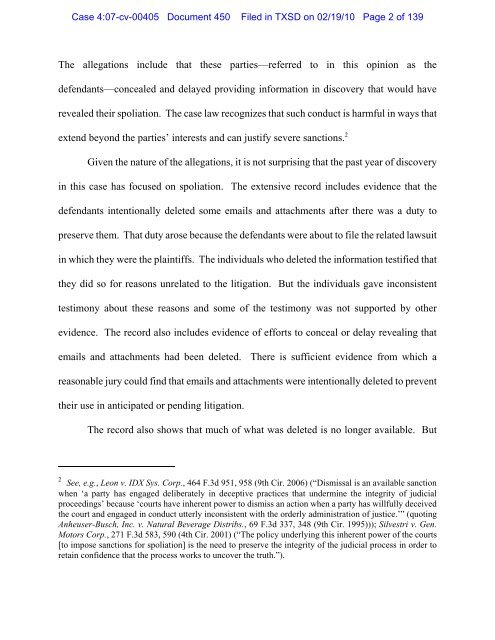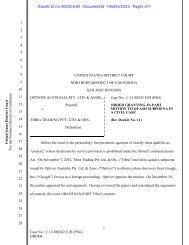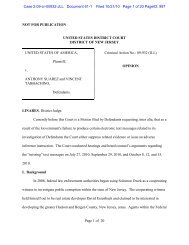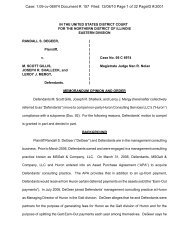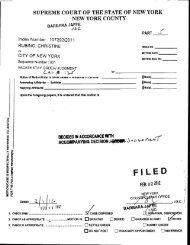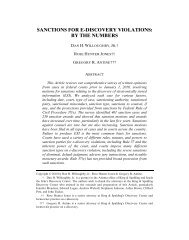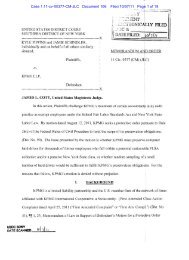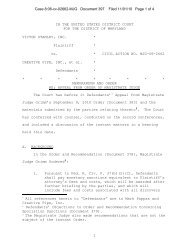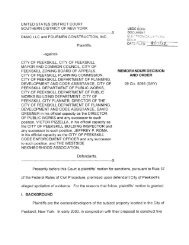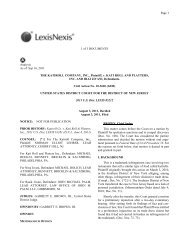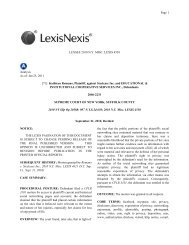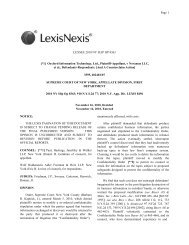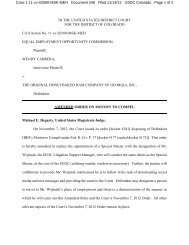Rimkus Consulting Group Inc. v. Cammarata - Ballard Spahr LLP
Rimkus Consulting Group Inc. v. Cammarata - Ballard Spahr LLP
Rimkus Consulting Group Inc. v. Cammarata - Ballard Spahr LLP
You also want an ePaper? Increase the reach of your titles
YUMPU automatically turns print PDFs into web optimized ePapers that Google loves.
Case 4:07-cv-00405 Document 450 Filed in TXSD on 02/19/10 Page 2 of 139<br />
The allegations include that these parties—referred to in this opinion as the<br />
defendants—concealed and delayed providing information in discovery that would have<br />
revealed their spoliation. The case law recognizes that such conduct is harmful in ways that<br />
extend beyond the parties’ interests and can justify severe sanctions. 2<br />
Given the nature of the allegations, it is not surprising that the past year of discovery<br />
in this case has focused on spoliation. The extensive record includes evidence that the<br />
defendants intentionally deleted some emails and attachments after there was a duty to<br />
preserve them. That duty arose because the defendants were about to file the related lawsuit<br />
in which they were the plaintiffs. The individuals who deleted the information testified that<br />
they did so for reasons unrelated to the litigation. But the individuals gave inconsistent<br />
testimony about these reasons and some of the testimony was not supported by other<br />
evidence. The record also includes evidence of efforts to conceal or delay revealing that<br />
emails and attachments had been deleted. There is sufficient evidence from which a<br />
reasonable jury could find that emails and attachments were intentionally deleted to prevent<br />
their use in anticipated or pending litigation.<br />
The record also shows that much of what was deleted is no longer available. But<br />
2 See, e.g., Leon v. IDX Sys. Corp., 464 F.3d 951, 958 (9th Cir. 2006) (“Dismissal is an available sanction<br />
when ‘a party has engaged deliberately in deceptive practices that undermine the integrity of judicial<br />
proceedings’ because ‘courts have inherent power to dismiss an action when a party has willfully deceived<br />
the court and engaged in conduct utterly inconsistent with the orderly administration of justice.’” (quoting<br />
Anheuser-Busch, <strong>Inc</strong>. v. Natural Beverage Distribs., 69 F.3d 337, 348 (9th Cir. 1995))); Silvestri v. Gen.<br />
Motors Corp., 271 F.3d 583, 590 (4th Cir. 2001) (“The policy underlying this inherent power of the courts<br />
[to impose sanctions for spoliation] is the need to preserve the integrity of the judicial process in order to<br />
retain confidence that the process works to uncover the truth.”).


